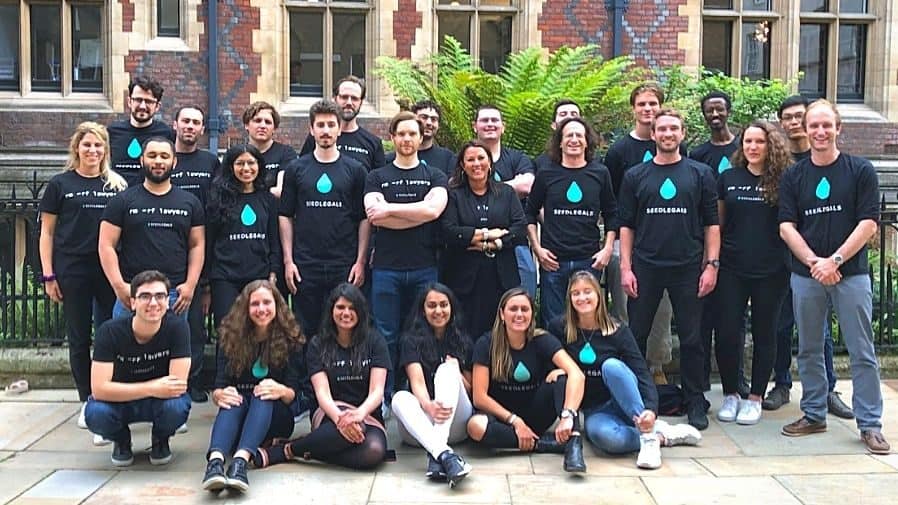Fundraising is tough. But it’s especially hard for early-stage businesses who may not be familiar with the process, where it can take between eight to 12 months to close a round.
While the effort is worth the reward, the lengthy process can detract from business as usual, as founders woo investors by pouring blood, sweat and tears into their pitch deck and due diligence checks.
Working with over 15,000 startup founders around the UK, one question that always comes up is; ‘How can I make this process go faster’.
The short answer is, there is no one way to make that happen. The long answer, however, is that there are a number of things you can do to ensure the process runs as smoothly, and therefore quickly, as possible.
Here are six tips and pieces of advice I often suggest founders consider when approaching their investment rounds.
Have all the obvious answers up your sleeve
As an early-stage startup trying to fundraise, it’s vital you can tell a version of your company’s story which demonstrates the high likelihood of growth to attract an investor. Known as forms of “validation and traction”, you can use anecdotes about your company’s success to help leverage conversations with investors.
Common validation and traction points include: a focus on your amazing team, framing your unique product within the market and underlining the problem it’s solving, highlighting non-monetised growth (such as social networks) and monetised growth (pretty much all other kinds of business not included in non-monetised growth).
Knowing how to present your company and the type of questions an investor might ask, and having this ready from the offset is one sure-fire way to avoid some of the most time-consuming follow-up questions.e
Get your head around SEIS
The Seed Enterprise Investment Scheme (SEIS) is a UK government initiative which encourages innovation by granting private investors a significant tax break when investing in early stage, ‘high-risk’ companies.
SEIS allows an individual to invest up to £100,000 per tax year and to receive a 50% tax break in return. The investor will also benefit from a capital gains tax exemption on any profits that arise from the sale of shares after three years.
With SEIS it’s important to note that most investors will require advance assurance that your company is eligible for SEIS funding, so ensure you submit an application to HMRC before you start offering investors SEIS investment opportunities.
If you’re a little bigger and more established, it’s worth taking the same approach for EIS.
Consider the timings of your investment round
Venture capitalists often work in scheduled bursts, with little deal activity generally taking place across the holidays or the summer, and a bustle of activity before the end of the tax year and Christmas.
For founders, it’s important to start talking to investors based on when you want to close the round, factoring in busy periods throughout the year. For example, starting in January with the aim of closing before the start of summer, or starting in the summer with the aim of closing before the busy Christmas period, are optimum times.
Looking to the future with Advanced Subscription Agreements (“SeedFAST”)
From a founder perspective, raising cash ahead of funding rounds can sometimes feel like a continuous process. We recommend exploring advanced subscription agreements, also known as SeedFASTs, as a way to keep the process ticking over until you reach significant moments in the funding round calendar.
These subscription agreements work by asking investors to give money in advance in order to subscribe for shares in the next funding round. It’s a quick and inexpensive way to raise funds that will ensure you continue growing your business without having to corral a group of investors into a funding round and having to agree a valuation, fixed close date and long-form legals at each stage.
Using term sheets to your advantage
Ahead of securing any investment, you’ll need to be aware of Term Sheets – essentially a document which summarises the terms of your investment agreement.
It’s good to have a rough idea of how these work, and what yours may look like further down the line, as term sheets are where a large amount of negotiation can happen. They include not only your business valuation, but also things like vesting, reporting requirements and even your salary.
By having an idea of what this will look like before you enter into any negotiations, it will be a much smoother process from the outset.
Explore bootstrap investment for a quick injection of cash
We’ve seen a surge in bootstrap investment over the last year, and while early stage founders might be looking for that seed or pre-seed round, many ignore bootstrap rounds which offer a much quicker injection of cash while you continue investor conversations.
Although perhaps not the most sustainable option long-term, Bootstrapping can help get your startup running and growing in the right direction, and support it through turbulent early stage growth, when it’s often needed most.
Anthony Rose, CEO and founder of Seedlegals, the largest closer of funding rounds in the UK during the coronavirus pandemic.
The post Six ways to close your funding round faster than ever appeared first on UKTN (UK Tech News).



